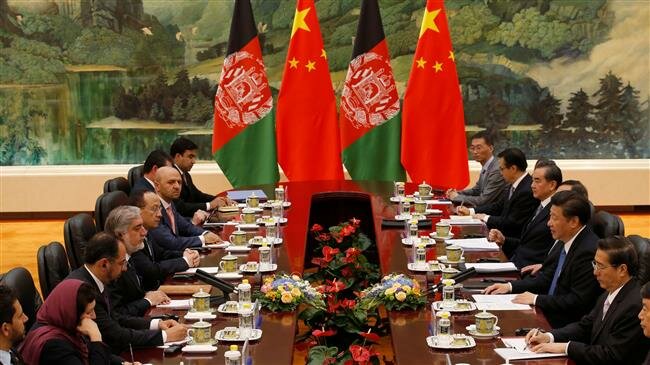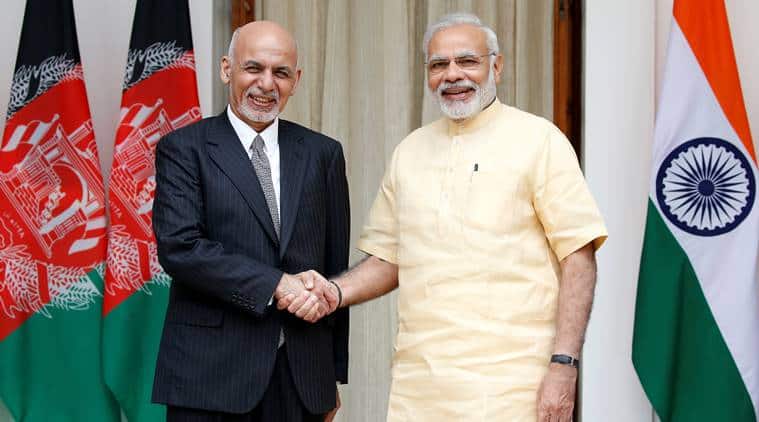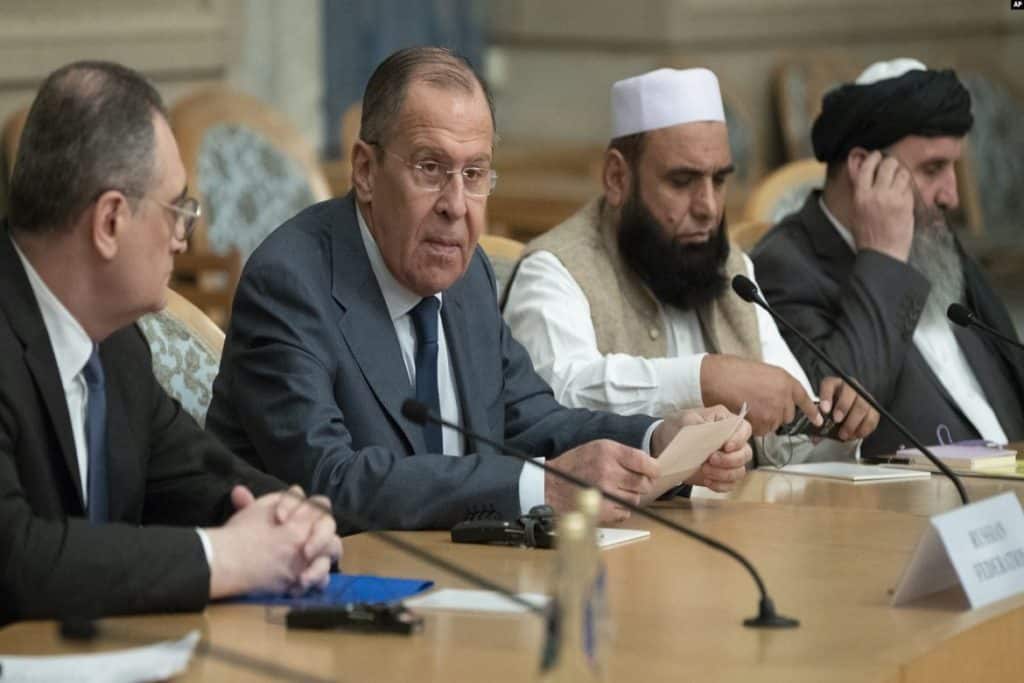By Anton Evstratov
In addition to the United States, other powers, Russia, China and India, which are able to press Washington, have begun to play an increasingly active role in the Afghan settlement.
The Sino-US-Russian consultations on Afghanistan, which took place in Moscow at the end of April, can be called a kind of new era in the Afghan political settlement. The United States, has been operating in Afghanistan since 2001, after its expulsion from the region in the late 1980s. Russia, since the last century, has not returned there. China,for many centuries has not played a leading role in this difficult country.
As a result, an agreement was outlined, implying a number of defining moments – joint work on the withdrawal of foreign troops from the territory of Afghanistan, the fight against terrorism, the cessation of inter-Afghan armed confrontation and the organization of political dialogue between official Kabul and Taliban representatives.
At first glance, the participation of the United States in the forum, which means depriving their monopoly in Afghan affairs it looks strange and unusual. However, the Trump administration was guided by pragmatic considerations – the withdrawal of their troops from Afghanistan against the background of the still powerful Taliban factor is impossible without international solidarity in the Afghan settlement.
However, this solidarity has developed around Washington after the events of September 11, 2001, has long been leveled out, and restoring it is the task of the United States at present. As a result, the cooperating powers could jointly speak on Afghan issues at leading international platforms, including the UN Security Council.
Moreover, each of the countries which present in Moscow has its own goals in Afghanistan. Russia, in particular, against the background of opposition to the West and the intensification of policy in the Middle East, is seeking to expand its representation in the “third world”.
Against this background, not only the above-mentioned event looks very remarkable, but also Moscow’s attempts earlier to bring closer to the government of Afghanistan and the Taliban, including inviting representatives of the latter to the Russian Federation for consultations.
It is unlikely that Russia will manage to balance the US in Afghanistan in the foreseeable future, but against the background of the withdrawal of American troops from the country and the inter-Afghan dialogue, it is possible to create some alternative external factor.
However, the early withdrawal of American troops from the territory of the republic is questionable. In early May in the House of Representatives of the US Congress, this was announced by Co-Chairman of the Committee of Chiefs of Staff of the American Armed Forces, General Joseph Dunford. According to the general, the Americans are now simply not ready to withdraw their military from Afghanistan due to the lack of achievement of key goals – in particular, the victory over terrorism.
Moreover, the May 11 assassination of Mina Mangal, an adviser to the parliamentary culture commission of Afghanistan in Kabul, and the terrorist attack on Farah Province on May 6, which killed 20 soldiers, confirm Dunford’s findings.
In this sense, the Moscow initiative to include the Taliban in the negotiation process in fails – their promise not to attack the government troops lasted only a few weeks.
The situation is complicated by the presence of the Pakistani factor in the country, which since the times of the Soviet intervention has been dangerous and destabilizing.
A de facto state under external control (against the backdrop of a weak economy, is unable to provide public sector wages, declaring bankruptcy–according to a recent statement by the Minister of Finance,) has deep and long-standing ties in Afghanistan’s Pashtun and military environment.
In addition, in Pakistan Afghan militants often has to leave. Previously, these were the Taliban, but now this practice is used by the “Islamic State” and “Al-Qaida”. In turn, state is in war, both with the Taliban and among themselves. In Pakistan, its North-West provinces, militants were trained, who were subsequently sent to Afghanistan.
However, at present, the country simply does not have the means. Funds are provided by the monarchies of the Persian Gulf. In addition, Islamabad is increasingly becoming a strategic and transport appendage of China.
The country is flooded with Chinese businessmen, and the Pakistani port of Gwadar was leased to Beijing, in fact, the only base of the Chinese Navy outside the PRC. Beijing is actively investing in Pakistan’s transportation infrastructure, as well as covering it in the international arena. For example, it was China that imposed a veto on the UN Security Council resolution, which recognized the organizer of the terrorist attacks against the Indian military in Kashmir as terrorists.
However, Pakistan in this sense is only a peripheral direction for the penetration of China into Afghanistan. Basically, this penetration goes through the northeastern province of the country – Badakhshan. Without formally entering the “One Belt – One Road” global Chinese transport initiative, the country is attached to it de facto.
 In 2016, a memorandum of understanding appeared between the countries, and at the same time Afghan Khairatan reached the first Chinese freight train. Later, an air corridor appeared between the Chinese Urumqi and Kabul, which became an official branch of the said initiative “One Belt – One Way”.
In 2016, a memorandum of understanding appeared between the countries, and at the same time Afghan Khairatan reached the first Chinese freight train. Later, an air corridor appeared between the Chinese Urumqi and Kabul, which became an official branch of the said initiative “One Belt – One Way”.
A year later, Beijing decided to allocate $ 90 million to modernize the infrastructure of the province of Badakhshan. It is expected that in this way, the Vakhan corridor, promising for the Chinese “belt,” as well as schools and hospitals in nearby villages, will be brought into line with international standards. Apparently, this is the ground for the Chinese businessmen, workers and concessions there, which is planned for the near future.
In addition, China is interested in Afghanistan in terms of resource extraction. In 2007, a $ 3 billion contract was awarded for copper mining in the country. The matter concerns the exploitation of the Ainak deposit by the Chinese company CMG. In 2011, China began to produce oil in Afghanistan in the river basin,Amu Darya. Later, the aforementioned CMG agreed on the construction of oil refineries in the Sar-e-Pul and Faryab provinces of Afghanistan, which was, in fact, the beginning of the Afghan oil production.
China’s interests are no longer limited to the economy. In the province of Badakhshan, Beijing has begun to finance a new base of Afghan forces. Relevant information was voiced by General Davlat Vaziri. It is expected that the weapons, equipment and even the uniform of Afghan soldiers will be paid for by the PRC, which will thus ensure the protection of its projects in Afghanistan.

Another player in the Afghan territory was quite unexpectedly, India. New Delhi is positioning itself as an ally of Afghanistan – as opposed to Pakistan, which is positively perceived by the leadership and political elite of the country. At the same time, India was able to establish mutual understanding with the PRC in the Afghan direction, which is quite remarkable, in the historically difficult relations between these states.
In April 2018, Chinese President Xi Jingping and Indian Prime Minister Narendra Modi held a meeting in China, during it they discussed the Afghan issue. Later, during his visit to India, he positively assessed the efforts of New Delhi and the US special envoy for Afghanistan, Zalmay Khalilzad.
No less than the rest are interested in a peaceful settlement of the Afghan issue, Iran, over the years of the Afghan crisis, has received millions of refugees. There is still no exact number of the latter, since most migrants from Afghanistan to Iran are not even registered. During a recent visit to Moscow on May 8, 2019, Iranian Foreign Minister Javad Zarif discussed the situation in Afghanistan.
At present, it is difficult to imagine that under the existing level of confrontation between Tehran and Washington, the United States will allow the role of Iran to increase in another conflict, as happened in Syria. At the same time, Iran could indeed make a significant contribution to the achievement of peace in the neighboring state.
It is obvious that in the near future it can not wait for a final decision or even visible progress in the Afghan issue. On the one hand, the socio-political situation inside the country does not favor such a scenario. On the other hand, the already existing external contradictions will be aggravated with an increase in the number of interested parties.
Despite Washington’s initial message about creating a new coalition, as well as the relatively cloudless interaction between the United States, Russia, China and India at the moment. But, each of them has its own goals. In such conditions, it is possible of turning Afghanistan into yet another platform for demonstrating the strength and capabilities of traditional opponents – Washington and Moscow, Beijing and New Delhi.
(The views expressed in this article belong only to the author and do not necessarily reflect the views of World Geostrategic Insights)







